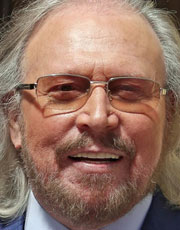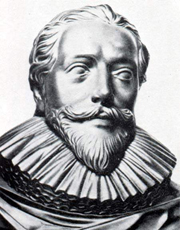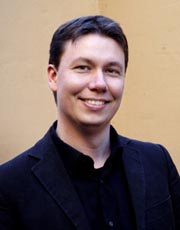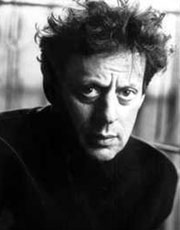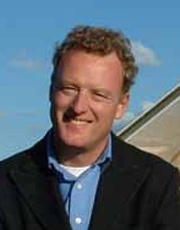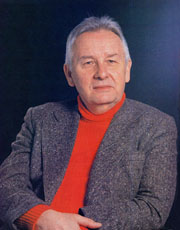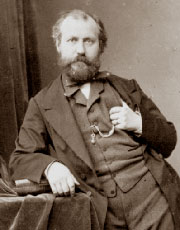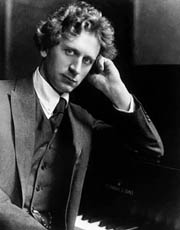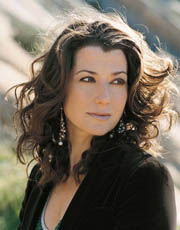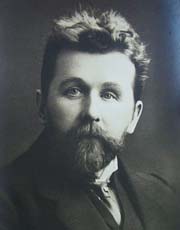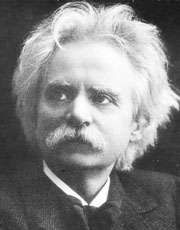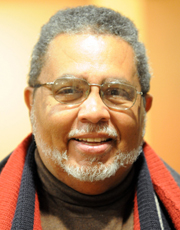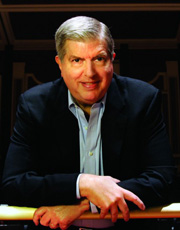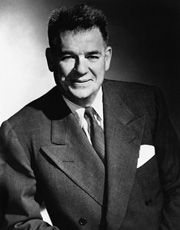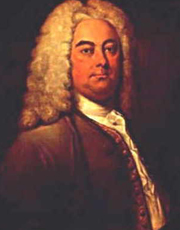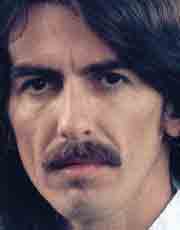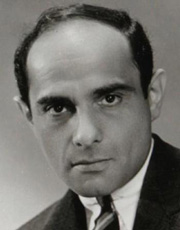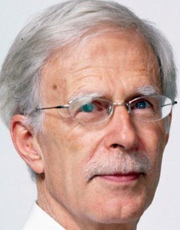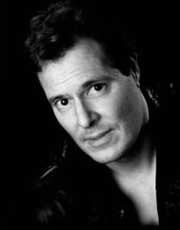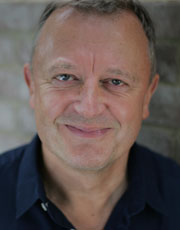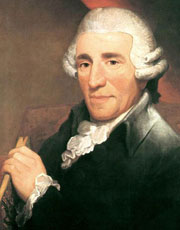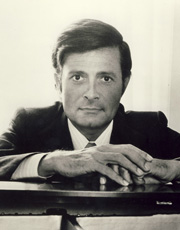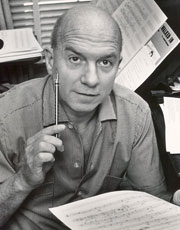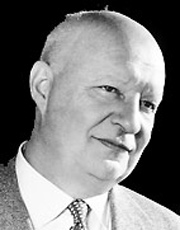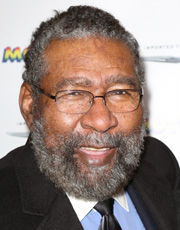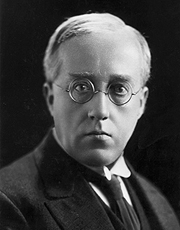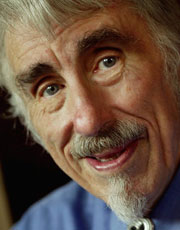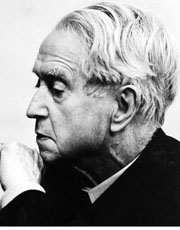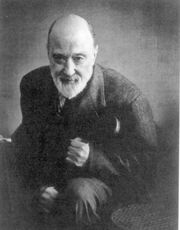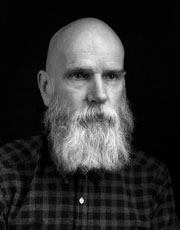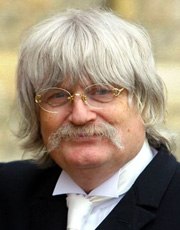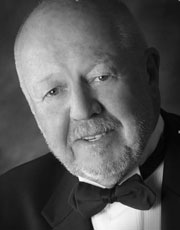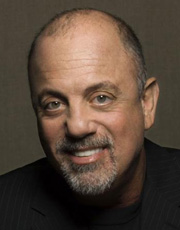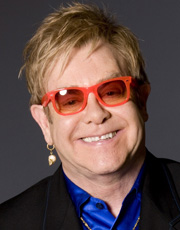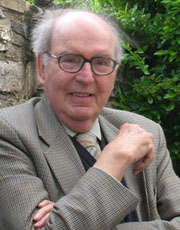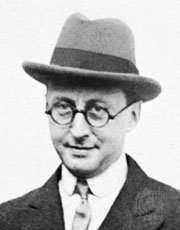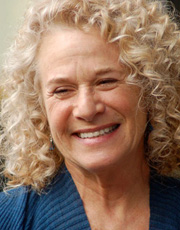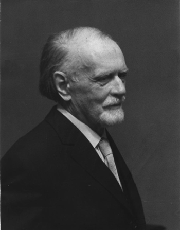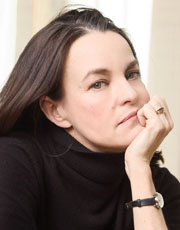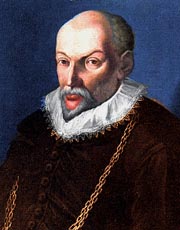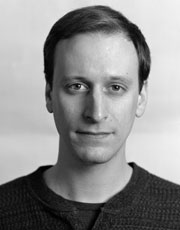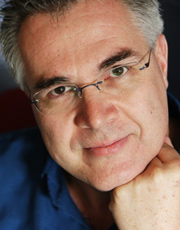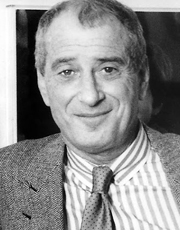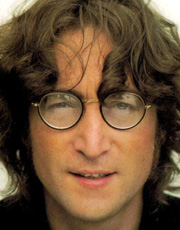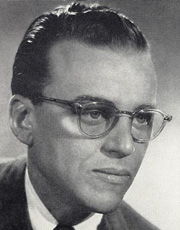In Celebration of the Human Voice - The Essential Musical Instrument
Home | Doo Wop | Barbershop | World | Contemporary | Christian | Vocal Jazz | Choral | Christmas | Instructional | Arrangements
Classical | Opera | Musicals | Personality | Young Singers | Disney | Videos | Songs | The Artists

Choral Composers
So much of what many of us would think of as choral music is traditional, centuries-old works, things our parent and grandparents grew up with, but that’s really not the be-all and end-all of choral works. There are many talented, genius composers of the last century and a bit, who have created some beautiful, stellar works that are being sung by choirs around the world today. Why not check out some of these brilliant men and women’s work? If you’ve never tried modern choral work, you’re in for a lovely surprise. Why not treat yourself to that surprise today?
![]() Composers - Early Music | Classical | 20th Century | Modern
Composers - Early Music | Classical | 20th Century | Modern
Displaying 101 - 150 of 309 items.
Barry Gibb
Gibb's career has spanned over 60 years. In 1994, he was inducted into the Songwriters Hall of Fame with his brothers. In 1997, as a member of the Bee Gees, he was inducted into the Rock and Roll Hall of Fame, and received the Brit Award for Outstanding Contribution to Music. He is a fellow of the British Academy of Songwriters, Composers and Authors. In 2007, Q magazine ranked him number 38 on its list of the "100 Greatest Singers". Gibb was appointed a Commander of the Order of the British Empire (CBE) in the 2002 New Year Honours for services to music and entertainment, and a Knight Bachelor in the 2018 New Year Honours for services to music and charity. He was also made an Honorary Companion of the Order of Australia on 27 January 2022, in the 2022 Special Honours, for eminent service to the performing arts as a musician, songwriter, and record producer, to the advancement of Australian music artists, and to philanthropy
Orlando Gibbons
Orlando Gibbons, born in Oxford, came of a musical family, like his near contemporary, Thomas Tomkins. His father William (c. 1540-1595) was appointed one of the waits at Cambridge in 1567, a fact which, at this time, would indicate that he was a singer or instrumentalist, or both. Orlando's brothers Edward (c. 1570-c. 1650) and Ellis (1573-1603) are each represented by a small number of surviving works. Christopher (1615-1676), his son, was to achieve an estimable position as a composer of the baroque period. As might be expected, some confusion in attributions has resulted from the fact that several members of the family composed. Orlando, in 1596, entered the choir at King's College, Cambridge. He became organist of the Chapel Royal in 1605, and in 1606 took the degree of Mus. Bac. at Cambridge. On May 17, 1622, the Chair of History at Oxford was founded by William Camden (1551-1623), the antiquary and historian, and at his request the degree of Mus. Doc. was conferred upon Gibbons on this occasion. In 1623, Gibbons became organist of Westminster Abbey, and as such he officiated at James I's funeral in 1625. Soon thereafter he himself died suddenly at Canterbury where, with the rest of the Chapel Royal, he had gone in attendance upon Charles I; the new king was waiting there to leave for Dover and meet his bride Henrietta Maria upon her arrival from France.
Ola Gjeilo
Ola Gjeilo is one of the most frequently performed composers in the choral world. An accomplished pianist, improvisations over his own published choral pieces have become a trademark of his collaborations across the world. Although Norwegian by birth, it is perhaps Ola's adopted country of America that has influenced the composer's distinctive soundworld the most, evolving a style that is both contemporary and familiar; thick harmonies and rich textures recall film score - music that forms a major part of the composer's inspiration.
Ola grew up in a musically eclectic home listening to classical, jazz, pop and folk, a broad background he later incorporated into his classical composition studies at The Juilliard School, and the Royal College of Music, London, and currently as a New York City-based full-time composer.
Philip Glass
Through his operas, his symphonies, his compositions for his own ensemble, and his wide-ranging collaborations with artists ranging from Twyla Tharp to Allen Ginsberg, Woody Allen to David Bowie, Philip Glass has had an extraordinary and unprecedented impact upon the musical and intellectual life of his times.
The operas - "Einstein on the Beach," "Satyagraha," "Akhnaten," and "The Voyage," among many others - play throughout the world's leading houses, and rarely to an empty seat. Glass has written music for experimental theater and for Academy Award-winning motion pictures such as "The Hours" and Martin Scorsese's "Kundun," while "Koyaanisqatsi," his initial filmic landscape with Godfrey Reggio and the Philip Glass Ensemble, may be the most radical and influential mating of sound and vision since "Fantasia." His associations, personal and professional, with leading rock, pop and world music artists date back to the 1960s, including the beginning of his collaborative relationship with artist Robert Wilson. Indeed, Glass is the first composer to win a wide, multi-generational audience in the opera house, the concert hall, the dance world, in film and in popular music -- simultaneously.
Howard Goodall
Howard Goodall is an EMMY, BRIT, Gramophone and BAFTA -winning composer of choral music, stage musicals, film and TV scores, is well known as a TV and Radio broadcaster and is a leading spokesperson for music education in the UK. His best-known themes & scores include Into the Storm, The Gathering Storm, The Borrowers, Red Dwarf, The Catherine Tate Show, Q.I., Mr Bean, Bean: The Ultimate Disaster Movie, Mr Bean's Holiday, Blackadder, and The Vicar of Dibley.
In the theatre his many musicals, from The Hired Man with Melvyn Bragg to Love Story, have been performed throughout the English-speaking world from the West End to Off-Broadway, winning many international awards, including Ivor Novello and TMA Awards for Best Musical.
Henryk Gorecki
After musical studies in Rybnik and Katowice, HM Gorecki's compositions first made their mark in the mid-1950s when he found himself at the forefront of the Polish avant-garde at the time of the post-Stalin cultural thaw. His early works show a clear development from the folk-influenced worlds of Szymanowski and Bartok in the Four Preludes for piano and Songs of Joy and Rhythm (1956) to the modernist techniques of Webern and Boulez in Epitafium (1958) and Symphony No.1 (1959), both premiered at the Warsaw Autumn Festival. During the 1960s Gorecki continued in a radical direction in the Genesis and Muzyczka cycles of works, whilst paring down his compositional material and exploring the folk music traditions of his beloved Tatra region in such works as Three Pieces in Old Style (1963) and Muzyka staropolska (Old Polish Music).
Charles Gounod
Charles-Francois Gounod, usually known as Charles Gounod, was a French composer. He wrote twelve operas, of which the most popular has always been Faust (1859); his Romeo et Juliette (1867) also remains in the international repertory. He composed a large amount of church music, many songs, and popular short pieces including his Ave Maria (an elaboration of a Bach piece), and Funeral March of a Marionette.
Few of Gounod's works remain in the regular international repertoire, but his influence on later French composers was considerable. In his music there is a strand of romantic sentiment that is continued in the operas of Jules Massenet and others; there is also a strand of classical restraint and elegance that influenced Gabriel Faure. Claude Debussy wrote that Gounod represented the essential French sensibility of his time.
Percy Grainger
The Australian-born American pianist and composer, Percy Aldridge Grainger, was born to a father who was an architect who emigrated from London, England, and and to a mother, Rose, who was the daughter of hoteliers from Adelaide, South Australia, also of English immigrant stock. His father was an alcoholic. When Grainger was age 11, his parents separated after his mother contracted syphilis from his father, who then returned to London. Grainger's mother was domineering and possessive, although cultured; she recognised his musical abilities, and took him to Europe in 1895 to study at Dr. Hoch's conservatory in Frankfurt. There he displayed his talents as a musical experimenter, using irregular and unusual meters.
Amy Grant
Amy Lee Grant (born November 25, 1960) is an American singer-songwriter, musician, author, media personality and actress, best known for her Christian music. She has been referred to as "The Queen of Christian Pop". As of 2009, Grant remains the best-selling contemporary Christian music singer ever, having sold over 30 million units worldwide.
Grant has won six Grammy Awards, 25 Gospel Music Association Dove Awards, and had the first Christian album ever to go Platinum. Heart in Motion is her highest selling album, with over five million copies sold in the United States alone. She was honored with a star on Hollywood Walk of Fame in 2005 for her contributions to the entertainment industry.
Alexander Gretchaninov
Gretchaninov started his musical studies rather late because his father, a businessman, had expected the boy to take over the family firm. Gretchaninov himself related that he did not see a piano until he was 14 and began his studies at the Moscow Conservatory in 1881 against his father's wishes and without his knowledge. His main teachers there were Sergei Taneyev and Anton Arensky. In the late 1880s, after a quarrel with Arensky, he moved to St. Petersburg where he studied composition and orchestration with Nikolai Rimsky-Korsakov until 1893. Rimsky-Korsakov immediately recognized Gretchaninov's extraordinary musical imagination and talent and gave him much extra time as well as considerable financial help. This allowed the young man, whose parents were not supporting him, to survive. Out of this came an important friendship, which only ended in 1908 with Rimsky's death. As such, it is not surprising that Rimsky's influence can be heard in Gretchaninov's early works, such as his String Quartet No.1, a prize-winning composition.
Around 1896, Gretchaninov returned to Moscow and was involved with writing for the theater, the opera, and the Russian Orthodox Church. His works, especially those for voice, achieved considerable success within Russia, while his instrumental works enjoyed even wider acclaim. By 1910, he was considered a composer of such distinction that the Tsar awarded him an annual pension.
Edvard Grieg
Grieg was born in Bergen, and was of partial Scottish descent. His great-grandfather immigrated to Norway around 1770, and settled as a businessman in Bergen. Edvard was brought up in a musical home. His mother, Gesine, became his first piano teacher.
In the summer of 1858, Grieg met the legendary Norwegian violinist Ole Bull, who was a friend of the family and Gesine's brother-in-law. Bull noticed the 15-year-old boy's talent and persuaded his parents to allow him to go to Leipzig to study.
Grieg attained numerous concerts in Leipzig, but disliked the dicipline of the conservatory and found it little inspiring. In the spring of 1860, he caught a life-threatening lounge disease. The year after, he made his debut as a concert pianist, in Karlshamn, Sweden. The next year he finished his studies in Leipzig, and held his first concert in his hometown Bergen.
Adolphus Hailstork
Adolphus Hailstork received his doctorate in composition from Michigan State University, where he was a student of H. Owen Reed. He completed earlier studies at the Manhattan School of Music, under Vittorio Giannini and David Diamond, the American Institute at Fontainebleau with Nadia Boulanger, and Howard University with Mark Fax.
Dr. Hailstork has written in a variety of genres, producing works for chorus, solo voice, piano, organ, various chamber ensembles, band, and orchestra. His early compositions include Celebration, recorded by the Detroit Symphony in 1976; and two works for band (Out of the Depths, 1977, and American Guernica, 1983), both of which won national competitions. Consort Piece (1995), commissioned by the Norfolk Chamber Ensemble, was awarded first prize by the University of Delaware Festival of Contemporary Music.
Marvin Hamlisch
Marvin Hamlisch was born in Manhattan, to Viennese-born Jewish parents Lilly (nee Schachter) and Max Hamlisch. His father was an accordionist and bandleader. Hamlisch was a child prodigy, and, by age five, he began mimicking the piano music he heard on the radio. A few months before he turned seven, in 1951, he was accepted into what is now the Juilliard School Pre-College Division. His first job was as a rehearsal pianist for Funny Girl with Barbra Streisand. Shortly afterward, he was hired by producer Sam Spiegel to play piano at Spiegel's parties. This connection led to his first film score, The Swimmer. His favorite musicals growing up were My Fair Lady, Gypsy, West Side Story, and Bye Bye Birdie.Hamlisch attended Queens College, earning his Bachelor of Arts degree in 1967Hamlisch was one of only twelve people to win Emmy, Grammy, Oscar and Tony awards. This collection of all four is referred to as an "EGOT". He is one of only two people (along with Richard Rodgers) to have won those four prizes and a Pulitzer Prize.
Oscar Hammerstein
His grandfather, Oscar Hammerstein I, was an opera impresario, and his uncle was a successful Broadway producer. While a college student, the younger Hammerstein wrote and performed in several varsity shows at Columbia University. His first musical, Always You, for which he wrote the book and lyrics, opened on Broadway in 1921. He was co-writer of the popular Rudolf Friml operetta Rose-Marie, and then began a successful collaboration with composer Jerome Kern on Sunny, which was a great hit. Their most successful collaboration, though was the 1927 musical Show Boat, which is considered to be one of the masterpieces of the American musical theatre. Hammerstein continued to work with Kern and operetta composer Sigmund Romberg, among others, over the next several years on shows such as Sweet Adeline, Music in the Air, and Very Warm for May, a critical failure which nevertheless contained one of Kern and Hammerstein's loveliest songs, 'All the Things You Are.'
George Frideric Handel
Handel was born February 24, 1685, in Halle, Germany, to a family of no musical distinction. His own musical talent, however, manifested itself so clearly that before his tenth birthday he began to receive, from a local organist, the only formal musical instruction he would ever have. Although his first job, beginning just after his 17th birthday, was as church organist in Halle, Handel's musical predilections lay elsewhere. Thus, in 1703 he traveled to Hamburg, the operatic center of Germany; here, in 1704, he composed his own first opera, Almira, which achieved great success the following year. Once again, however, Handel soon felt the urge to move on, and his inclinations led him to Italy, the birthplace of operatic style. He stopped first at Florence in the autumn of 1706. In the spring and summer of 1707 and 1708 he traveled to Rome, enjoying the patronage of both the nobility and the clergy, and in the late spring of 1707 he made an additional short trip to Naples. In Italy Handel composed operas, oratorios, and many small secular cantatas; he ended his Italian sojourn with the spectacular success of his fifth opera, Agrippina (1709), in Venice.
George Harrison
George Harrison, MBE was an English guitarist, singer-songwriter, and producer who achieved international fame as the lead guitarist of The Beatles. Often referred to as "the quiet Beatle", Harrison embraced Hinduism and helped broaden the horizons of his fellow band mates as well as their American audience by incorporating Indian instrumentation in their music. Although most of the Beatles' songs were written by John Lennon and Paul McCartney, most Beatles albums from 1965 onwards contained at least two Harrison compositions. His songs for the group included "Taxman", "Within You Without You", "While My Guitar Gently Weeps", "Here Comes the Sun" and "Something", the last of which became the Beatles' second-most covered song.
Lorenz Hart
Lorenz Milton Hart was the lyricist half of the Broadway songwriting team Rodgers and Hart. Some of his more famous lyrics include "Blue Moon," "Mountain Greenery," "The Lady Is a Tramp," "Manhattan," "Where or When," "Bewitched, Bothered, and Bewildered," "Falling in Love with Love," "My Funny Valentine," "I Could Write a Book", "This Can't Be Love", "With a Song in My Heart", "It Never Entered My Mind", and "Isn't It Romantic?". Hart was born in Harlem, the elder of two sons, to Jewish immigrant parents, Max M. and Frieda (Isenberg) Hart, of German background. His father, a business promoter, sent Hart and his brother to private schools
Jonathan Harvey
Born in Warwickshire in 1939, Jonathan Harvey was a chorister at St Michael's College, Tenbury and later a major music scholar at St John's College, Cambridge. He gained doctorates from the universities of Glasgow and Cambridge and (on the advice of Benjamin Britten) also studied privately with Erwin Stein and Hans Keller. He has written many widely-performed unaccompanied works for choir - as well as the large-scale cantata for the BBC Proms Millennium, Mothers shall not Cry (2000). His church opera Passion and Resurrection (l981) was the subject of a BBC television film, and has received seventeen subsequent performances. His opera Inquest of Love, commissioned by ENO, was premiered under the baton of Mark Elder in 1993 and repeated at Theatre de la Monnaie, Brussels in 1994.
Harvey is now in constant demand from a host of international organisations, attracting commissions far into the future, and his music is extensively played and toured by the major ensembles of our time (Musikfabrik, Ensemble Modern, Ensemble Intercontemporain, London Sinfonietta, ASKO, Nieuw Ensemble of Amsterdam and Ictus Ensemble, to name but a few).
Stephen Hatfield
Stephen Hatfield is a resident of Vancouver Island, where he composes for the theatre * Has taught band, chorus, stage band, vocal jazz, guitar, keyboard, steel drum and music appreciation, as well as university English and graduate courses in teaching techniques * Noted for his exciting arrangements of world music, and for his original works which weave influences from diverse cultures into a fresh and distinctive idiom * His choirs have earned gold medals in national festivals, and he has received various awards for his work in education, music and poetry, including the Governor General's Gold Medal * Often featured as a guest conductor and workshop leader throughout the world.
Marty Haugen
Marty Haugen is a liturgical composer, workshop presenter, performing and recording artist, and author from Eagan, Minnesota. For the past 30 years, Marty has presented hundreds of workshops and concerts across North and Central America, Europe, Asia, and the Pacific Rim. He has over 30 recordings and more than 400 separate printed editions available through GIA Publications, Inc. and other publishers. He has a number of published mass settings for Roman Catholic communities, including Mass of Creation, and several worship settings for Lutheran congregations, including Holden Evening Prayer and Now the Feast and Celebration, as well as a communion setting for the new Evangelical Worship Book.
Patrick Hawes
In recent years, Patrick Hawes has emerged as one of the country's most popular and inspirational composers. Born in Lincolnshire, he read music as an organ scholar at Durham University, and soon went on to make an impact in the world of choral music with his cantata The Wedding at Cana. It was with the release of his debut album Blue in Blue, however, that Patrick first gained widespread public recognition. Made CD of the Week on Classic FM in 2004, it was nominated for a Classical Brit award and was voted by Classic FM listeners as the fastest ever and highest new entry into the station's Hall of Fame. The standout track Quanta Qualia became a hit with audiences across the world and the New Zealand star Hayley Westenra recorded it for her own award-winning album Odyssey.
During the course of 2014, Patrick was commissioned to write three new works to mark the centenary of the outbreak of the First World War: the first was Eventide: In Memoriam Edith Cavell inspired by the heroism of the WWI nurse; the second depicted the legend of The Angel of Mons appearing to soldiers in the first battle of the war; the third was a work inspired by the unfinished Wilfred Owen poem I Know the Music.
Franz Joseph Haydn
Franz Joseph Haydnwas an Austrian composer of the Classical period. He was instrumental in the development of chamber music such as the string quartet and piano trio. His contributions to musical form have led him to be called "Father of the Symphony" and "Father of the String Quartet".
Haydn spent much of his career as a court musician for the wealthy Esterhazy family at their Eszterhaza Castle. Until the later part of his life, this isolated him from other composers and trends in music so that he was, as he put it, "forced to become original". Yet his music circulated widely, and for much of his career he was the most celebrated composer in Europe.
He was a friend and mentor of Mozart, a tutor of Beethoven, and the older brother of composer Michael Haydn.
Jerry Herman
Jerry Herman was an American composer and lyricist, known for his work in Broadway musical theater. He composed the scores for the hit Broadway musicals Hello, Dolly!, Mame, and La Cage aux Folles. He has been nominated for the Tony Award five times, and won twice, for Hello, Dolly! and La Cage aux Folles. In 2009, Herman received the Tony Award for Lifetime Achievement in the Theatre. He is a recipient of the 2010 Kennedy Center Honors.
In 1960, Herman made his Broadway debut with the revue From A to Z, which featured contributions from newcomers Woody Allen and Fred Ebb as well. In 1964, producer David Merrick united Herman with musical actress Carol Channing and librettist Michael Stewart for a project that was to become one of his more successful, Hello, Dolly!. The original production ran for 2,844 performances, the longest running musical for its time, and was later revived three times. Although facing stiff competition from Funny Girl, Hello, Dolly! swept the Tony Awards that season, winning 10, a record that remained unbroken for 37 years, until The Producers won 12 Tonys in 2001.
Jimmy Van Heusen
Jimmy Van Heusen was inarguably one of the most accomplished songwriters in history. Claiming four "Oscars" and one Emmy award among his credits he also wrote more songs (85) recorded by Frank Sinatra, his long time friend, than any other composer. He also composed the songs for another good friend, Bing Crosby for six of the seven Crosby/Hope Road pictures. In spite of such accolades he personally felt one of his biggest honors was being elected by his peers as one of the original inductees to the Songwriters Hall of Fame in 1971. Most of his songs were written with two lyricist partners Johnny Burke (1940 to 1953) and then Sammy Cahn.
Paul Hindemith
Paul Hindemith was a German composer, violist, violinist, teacher, music theorist and conductor. Born in Hanau, near Frankfurt, Hindemith was taught the violin as a child. He entered Frankfurt's Hoch'sche Konservatorium, where he studied violin with Adolf Rebner, as well as conducting and composition with Arnold Mendelssohn and Bernhard Sekles.
Hindemith is among the most significant German composers of his time. His early works are in a late romantic idiom, and he later produced expressionist works, rather in the style of early Arnold Schoenberg, before developing a leaner, contrapuntally complex style in the 1920s. This style has been described as neoclassical,(citation needed) but is very different from the works by Igor Stravinsky labeled with that term, owing more to the contrapuntal language of Bach than the Classical clarity of Mozart.
Brian Holland
Brian Holland is an American songwriter and record producer, best known as a member of Holland-Dozier-Holland, the songwriting and production team that was responsible for much of the Motown sound and numerous hit records by artists such as Martha and the Vandellas, The Supremes, The Four Tops, and The Isley Brothers. Holland, along with Lamont Dozier, served as the team's musical arranger and producer. He has written or co-written 145 hits in US and 78 in the UK.
Holland has also had an on-and-off career as a performer. He released a solo single in 1958 under the name of "Briant Holland". He and longtime friend and future songwriting partner Freddie Gorman were in a short-lived group called the Fidalatones, and he was later (1960-62) a member of the Motown recording act The Satintones as well as being a member of the Rayber Voices, a quartet that backed up several early Motown recording acts. He partnered with Lamont Dozier under the name "Holland-Dozier", releasing a lone single for Motown in 1963, then was inactive for a number of years, and was then revived in the early and mid-1970s, scoring a number of medium-sized R&B hits. Holland resumed his solo recording career in 1974, hitting the charts as a solo artist in '74 and '75.
Gustav Holst
Gustavus Theodore von Holst was an English composer with Latvian (and some Spanish) roots.
Born in Cheltenham, where he was educated at Pate's Grammar School, he went on to study at the Royal College of Music in London. His best-known work is probably his orchestral suite The Planets, completed in 1916, although the composer himself did not count it as one of his best creations and later often complained that other works were completely eclipsed by it. The Planets (1914-1916) was partly inspired by meditations on his own horoscope/natal chart and dealt with the 'seven influences of destiny and constituents of our spirit.' Holst was especially influenced by a 19th-century astrologer called Raphael, whose book concerning the planets' role in world affairs led Holst to develop the grand vision of the planets that made The Planets such an enduring success.
Egil Hovland
Egil Hovland was a composer born in Rade, Norway. He studied at the Oslo Conservatory with Arlid Sandvold and Bjarne Brustad, in Copenhagen with Vagn Holmboe, at Tanglewood with Aaron Copland, and in Florence with Luigi Dallapiccola. He was the organist and choir leader in Fredrikstad from 1949 until his death. His many works include two symphonies, a concerto for trumpet and strings, Music for Ten Instruments, a set of variations for two pianos, and a lament for orchestra. His sacred works include a Norwegian Te Deum, a Gloria, a Magnificat, and numerous works for organ. He was one of the most noted church composers in Norway.
He wrote in diverse styles, including Norwegian-Romantic, Gregorian, neo-classical, twelve-tone, aleatoric, and serial. In 1983, in honor of his work as a composer and organist, he was knighted into the Royal Norwegian Order of St. Olav. In 1992, he received the Fritt Ord Honorary Award. He was one of the most prolific contemporary Norwegian composers of his time.
Herbert Howells
Herbert Norman Howells CH was an English composer, organist, and teacher. He was the youngest of six children born to Oliver and Elizabeth Howells. His father was an amateur organist, and Herbert himself showed early musical promise. He studied first with Herbert Brewer at Gloucester Cathedral, as an articled pupil alongside Ivor Novello and Ivor Gurney, the celebrated English song-writer and poet, with whom he became great friends. Later he studied at the Royal College of Music under C.V. Stanford, Hubert Parry and Charles Wood.
In 1915 Herbert Howells was diagnosed with Graves' disease and given six months to live. Since doctors believed that it was worth taking a chance on a previously untested treatment, he became the first person in the country to receive radium treatment. He was briefly assistant organist at Salisbury Cathedral in 1917, though his severe illness cut this appointment short; he later served as acting organist of St John's College, Cambridge during World War II.
Charles Ives
Charles Ives was the son of George Ives, a U.S. Army bandleader in the American Civil War, and his wife Mary Parmelee. A strong influence of Charles's may have been sitting in the Danbury town square, listening to his father's marching band and other bands on other sides of the square simultaneously. George Ives's unique music lessons were also a strong influence on Charles; George Ives took an open-minded approach to musical theory, encouraging his son to experiment in bitonal and polytonal harmonizations. It was from his father that Charles Ives also learned the music of Stephen Foster. Ives became a church organist at the age of 14 and wrote various hymns and songs for church services, including his Variations on 'America' . Ives moved to New Haven in 1893, enrolling in the Hopkins School where he captained the baseball team. In September 1894, Ives entered Yale University, studying under Horatio Parker. Here he composed in a choral style similar to his mentor, writing church music and even an 1896 campaign song for William McKinley. On November 4, 1894 Charles's father died, a crushing blow to the young composer, but to a large degree Ives continued the musical experimentation he had begun with George Ives.
Gabriel Jackson
Gabriel Jackson was born in Bermuda in 1962. After three years as a chorister at Canterbury Cathedral, Jackson studied composition at the Royal College of Music, first with Richard Blackford and later with John Lambert, gaining his BMus in 1983. While at the College he was awarded the R.O. Morris Prize for Composition in 1981 and 1983, also winning the Theodore Holland Award in 1981. In 1992 he was awarded an Arts Council Bursary.
His music has been performed and broadcast throughout Europe and the USA, and in recent years has been heard in Cape Town, Ho Chi Minh City, Kiev, Kuwait, Sydney, Tokyo and Vancouver. His works have been presented at many festivals in the UK and beyond, including Aldeburgh, Cheltenham, ThreeTwo (New York), Lek Art 2000 & 2004 (Culemborg), ppIANISSIMO (Sofia), Haarlem Choir Biennale, Europa Cantat, Festival Vancouver, Festival ProBaltica, as well as Spitalfields and Meltdown in London. His liturgical pieces are in the repertoires of many of Britain's leading cathedral and collegiate choirs. In 2003 he won the liturgical category at the inaugural British Composer Awards.
Sir Karl Jenkins
Sir Karl William Pamp Jenkins, CBE is a Welsh musician and composer known for "Adiemus", The Armed Man and his Requiem. Jenkins holds a Doctorate in Music from the University of Wales. He has been made both a fellow and an associate of the Royal Academy of Music, and a room has been named in his honour. He also has had fellowships at Cardiff University (2005), the Royal Welsh College of Music & Drama, Trinity College Carmarthen, and Swansea Metropolitan University.
Dale Jergenson
Dale Jergenson, was recognized world wide as a composer and performer with extensive credits in classical, film and commercial music. He held a B.A. and M.A. from San Diego State University, where he was honored as "Music Alumnus of the year 2000," a California Community College Instructor Credential, had five years post-graduate study in composition at UCLA, is listed in "Who's Who in American Music," and is cited in "Choral Music in the Twentieth Century" by Nick Strimple. He is the winner of film awards from festivals including the U.S. Film Festival, The Cine Golden Eagle and the Tehran International Film Festival. He has received music composition awards from the AGEHR National Composition Contest, the Lincoln Music Festival, the Richmond Professional Institute, the Celia Buck Awards, Saint Andrew Music Society, Atwater Kent Awards and the 1994 Delius Vocal Category Award.
Billy Joel
Joel recorded many popular hit songs and albums from 1973 (beginning with the single "Piano Man") to his retirement from recording pop music in 1993. He is one of the very few rock or even pop artists to have Top 10 hits in the '70s, '80s, and '90s. A six-time Grammy Award winner, he has sold in excess of 100 million records worldwide and is the sixth best selling artist in the United States, according to the RIAA. Joel's induction into the Songwriter's Hall of Fame (Class of 1992), the Rock and Roll Hall of Fame (Class of 1999), and the Long Island Music Hall of Fame (Class of 2006) has further solidified his status as one of America's leading music icons. He has continued to tour occasionally (sometimes with Elton John) in addition to writing and recording classical music.
Sir Elton John
Sir Elton John is one of pop music's great survivors. Born 25 March, 1947, as Reginald Kenneth Dwight, he started to play the piano at the early age of four. At the age of 11, he won a scholarship to the Royal Academy of Music. His first band was called Bluesology. He later auditioned (unsuccessfully) as lead singer for the progressive rock bands King Crimson and Gentle Giant. Dwight teamed up with lyricist Bernie Taupin and changed his name to Elton John (merging the names of saxophonist Elton Dean and Long John Baldry). The duo wrote songs for Lulu and Roger Cook. In the early 1970s, he recorded the concept album "Tumbleweed Connection." He became the most successful pop artist of the 1970s, and he has survived many different pop fads including punk, the New Romantics and Britpop to remain one of Britain's most internationally acclaimed musicians.
John Joubert
John Jouber was a British composer of South African descent, particularly of choral works. He lived in Moseley, a suburb of Birmingham, England, for over 40 years. A music academic at the universities of Hull and Birmingham for 36 years, Joubert took early retirement in 1986 to concentrate on composing and has remained active into his 80s. Though perhaps best known for his choral music, particularly the carols Torches and There is No Rose of Such Virtue and the anthem O Lorde, the Maker of Al Thing, Joubert has composed over 160 works including two symphonies; violin, piano and bassoon concertos; and seven operas.
Jerome Kern
Jerome David Kern was born in 1885. He began his stage career grafting American songs (for which he wrote the music) into imported European operettas. His breakthrough came with the song "They Didn't Believe Me", written (with lyrics by Edward Laska) for a show called "The Girl from Utah". It established him as a major American composer in 1914. Married to a Englishwoman, Kern became an Anglophile, and teamed up with British writers Guy Bolton and P.G. Wodehouse to write the so-called "Princess Theatre musicals"--shows like "Very Good, Eddie" and "Leave It To Jane", which were unusual not so much for their silly storylines but for the fact that the characters were everyday people rather than the exotic characters of operetta, and also for the fact that these shows had few sets and small casts. He later wrote shows like "Sally" and "Sunny", both loaded with song hits, star casts and spectacular sets but silly plots.
Alicia Keys
Alicia Augello Cook (born January 25, 1981), known professionally as Alicia Keys, is an American singer, songwriter and actress. A classically trained pianist, Keys began composing songs by age 12 and was signed at 15 years old by Columbia Records. After disputes with the label, she signed with Arista Records and later released her debut album, Songs in A Minor, with J Records in 2001. The album was critically and commercially successful, selling over 12 million copies worldwide. It spawned the Billboard Hot 100 number-one single "Fallin'", and earned Keys five Grammy Awards in 2002. Her second album, The Diary of Alicia Keys (2003), was also a critical and commercial success, selling eight million copies worldwide, and producing the singles "You Don't Know My Name", "If I Ain't Got You", and "Diary". The album garnered her an additional four Grammy Awards.
Carole King
King's career began in the 1960s when she, along with her then husband Gerry Goffin, wrote more than two dozen chart hits for numerous artists, many of which have become standards. She has continued writing for other artists since then. King's success as a performer in her own right did not come until the 1970s, when she sang her own songs, accompanying herself on the piano, in a series of albums and concerts. After experiencing commercial disappointment with her debut album Writer, King scored her breakthrough with the album Tapestry, which topped the U.S. album chart for 15 weeks in 1971 and remained on the charts for more than six years.
Zoltan Kodaly
Zoltan Kodaly (December 16, 1882 - March 6, 1967) was a Hungarian composer, ethnomusicologist, educator, linguist and philosopher.
Though born in Kecskemet, Kodaly spent most of his childhood in Galanta and Nagyszombat (now Trnava, Slovakia). His father was a keen amateur musician, and Kodaly learned to play the violin as a child. He also sang in a cathedral choir and wrote music, despite having little formal musical education.
In 1900, Kodaly entered Budapest University to study modern languages, and began to study music at the Franz Liszt Academy in Budapest, where Hans Koessler taught him composition.
One of the first people to undertake the serious study of folk song, Kodaly became one of the most significant early figures in the field of ethnomusicology. From 1905 he visited remote villages to collect songs and in 1906 wrote his thesis on Hungarian folk song ('Strophic Construction in Hungarian Folksong'). Around this time he met fellow composer Bela Bartok, to whom he introduced Hungarian folk song. The two went on to publish several collections of folk music together, and they both show the influence of folk music in their own compositions.
Libby Larsen
Libby Larsen is one of America's most prolific and most performed living composers. She has created a catalogue of over 400 works spanning virtually every genre from intimate vocal and chamber music to massive orchestral works and over twelve operas. Her music has been praised for its dynamic, deeply inspired, and vigorous contemporary American spirit. Constantly sought after for commissions and premieres by major artists, ensembles and orchestras around the world, Libby Larsen has established a permanent place for her works in the concert repertory.
Libby Larsen has received numerous awards and accolades, including a 1994 Grammy as producer of the CD: The Art of Arlene Auger, an acclaimed recording that features Larsen's Sonnets from the Portuguese.
Orlando Lassus
Orlando di Lasso was born in Mons in the province of Hainaut, in what is today Belgium. Information about his early years is scanty, although some uncorroborated stories have survived, the most famous of which is that he was kidnapped three times because of the singular beauty of his singing voice. At the age of 12 he left the Low Countries with Ferrante Gonzaga and went to Mantua, Sicily, and later Milan (from 1547 to 1549). While in Milan he made the acquaintance of the madrigalist Hoste da Reggio, an influence which was formative on his early musical style.
He then worked as a singer and a composer for Constantino Castrioto in Naples in the early 1550s, and his first works are presumed to date from this time. Next he moved to Rome, where he worked for the Archduke of Florence, who maintained a household there; and in 1553, he became maestro di cappella (chorus leader) of the Basilica di San Giovanni in Laterano in Rome, a spectacularly prestigious post for a man only 21 years old, but he stayed there only for a year (Palestrina took this post a year later, in 1555).
Cyndi Lauper
Cynthia Ann Stephanie "Cyndi" Lauper is an American singer, songwriter, actress and LGBT rights activist. Her career has spanned over 30 years.Her debut solo album She's So Unusual (1983) was the first debut female album to chart four top-five hits on the Billboard Hot 100-"Girls Just Want to Have Fun", "Time After Time", "She Bop", and "All Through the Night"-and earned Lauper the Best New Artist award at the 27th Grammy Awards in 1985. Her success continued with the soundtrack for the motion picture The Goonies and her second record True Colors (1986). This album included the number one single "True Colors" and "Change of Heart", which peaked at number 3.
Morten Lauridsen
The music of Morten Johannes Lauridsen, composer-in-residence of the Los Angeles Master Chorale from 1994-2001 and professor of composition at the University of Southern California Thornton School of Music for more than thirty years, occupies a permanent place in the standard vocal repertoire of the Twentieth Century. His seven vocal cycles -- Les Chansons des Roses (Rilke), Mid-Winter Songs (Graves), Cuatro Canciones (Lorca), A Winter Come (Moss), Madrigali: Six "FireSongs" on Renaissance Italian Poems, Nocturnes, and Lux Aeterna -- and his series of sacred a cappella motets (O Magnum Mysterium, Ave Maria, O Nata Lux, Ubi Caritas et Amor and Ave Dulcissima Maria) are featured regularly in concert by distinguished ensembles throughout the world. O Magnum Mysterium, Dirait-on (from Les Chansons des Roses) and O Nata Lux (from Lux Aeterna) have become the all-time best-selling choral octavos distributed by Theodore Presser, in business since 1783.
Thomas LaVoy
Thomas LaVoy is an award-winning composer who specializes in composing for the human voice. His work is known for striking a balance between emotional depth and compositional craft, grounded in a firm belief in the power of words and music in tandem. His music is strongly influenced by his broad performance career as a choral artist, pianist, percussionist and singer-songwriter. He received his undergraduate degree from Westminster Choir College and his PhD from the University of Aberdeen in Scotland, where he was a choral scholar in the Chapel Choir of King's College, Aberdeen. .
Thomas' choral works have been commissioned and performed by choirs across the United States and the United Kingdom, as well as in Europe, Asia, and Oceania. Recent projects have included water psalms, a multi-movement work commissioned by Edinburgh Royal Choral Union for the 400th anniversary of the founding of Greyfriar's Kirk, I Am: The Song of Amergin, commissioned for the National Youth Choirs of Northern Ireland, Your name falls like rain, commissioned for Dallas Chamber Choir, and many others. He has also served as composer-in-residence for numerous choral and instrumental ensembles and has twice been an invited guest composer of the Choral Institute at Oxford.
Stephen Leek
Stephen Leek is a composer, conductor, educator and publisher who has been at the forefront of Australia's musical culture for over 20 years. His distinctive music captures the rhythms, colours and ethos of Australia and Australians. He is a versatile composer much respected for work that is suited to all ages and levels of skill. His prolific output is in a straight-forward musical language which speaks directly to its audience, yet maintains an integrity that has seen it performed by leading musicians in the great concert halls of the world.
Leek studied at the Canberra School of Music with composer Larry Sitsky and cellist Nelson Cooke. Stephen commenced his professional life doing part-copying work for other composers. He was offered the full-time position of Composer/Musician to the Tasmanian Dance Company - a position he held for 3 years. During that time he honed his skills by working in schools and in communities, composing and collaborating with choreographers and musicians in what was then Australia's only 'Dance in Education Company'.
Jerry Leiber
Lyricist Jerome Leiber and composer Michael Stoller were American songwriting and record producing partners. They found success as the writers of such crossover hit songs as "Hound Dog" and "Kansas City". Later in the 1950s, particularly through their work with The Coasters, they created a string of ground-breaking hits - including "Young Blood", "Searchin'", and "Yakety Yak" - that used the humorous vernacular of teenagers sung in a style that was openly theatrical rather than personal. They were the first to surround black music with elaborate production values, enhancing its emotional power with the Drifters in "There Goes My Baby", which influenced Phil Spector, who studied their productions while playing guitar on their sessions.
John Lennon
John Winston Ono Lennon, MBE was an English singer and songwriter who rose to worldwide fame as a co-founder of the Beatles, the most commercially successful band in the history of popular music. With fellow member Paul McCartney, he formed a celebrated songwriting partnership.
Born and raised in Liverpool, Lennon became involved in the skiffle craze as a teenager; his first band, the Quarrymen, evolved into the Beatles in 1960. When the group disbanded in 1970, Lennon embarked on a solo career that produced the critically acclaimed albums John Lennon/Plastic Ono Band and Imagine, and iconic songs such as "Give Peace a Chance", "Working Class Hero", and "Imagine". After his marriage to Yoko Ono in 1969, he changed his name to John Ono Lennon. Lennon disengaged himself from the music business in 1975 to raise his infant son Sean, but re-emerged with Ono in 1980 with the new album Double Fantasy. He was murdered three weeks after its release.
Alan Jay Lerner
(born Aug. 31, 1918, New York, N.Y., U.S. - died June 14, 1986, New York City) U.S. librettist and lyricist. Born to a prosperous retailing family, he studied at Juilliard and Harvard. He wrote more than 500 radio scripts between 1940 and 1942, the year he met the composer Frederick Loewe. The two began collaborating, and their first Broadway success came with Brigadoon (1947; film, 1954). It was followed by Paint Your Wagon (1951; film, 1969). My Fair Lady (1956) was an unprecedented triumph, setting a record for the longest original run of any musical; the film version (1964) won seven Academy Awards. Their film musical Gigi (1958) received nine Academy Awards. Camelot followed in 1960 (film, 1967). Lerner also collaborated with Kurt Weill (Love Life, 1948) and Burton Lane (On a Clear Day You Can See Forever, 1965; film, 1970), among others. His film scripts include An American in Paris (1951, Academy Award).
Gyorgy Ligeti
Ligeti was born in Tarnava-Sanmartin (in Hungarian, Dicsoszentmarton, renamed Tarnaveni in 1945), in the Transylvania region of Romania to a Hungarian Jewish family. Ligeti recalls that his first exposure to languages other than Hungarian came one day while listening to a conversation among the Romanian-speaking town police. Before that he hadn't known that other languages existed. He moved to Cluj (Kolozsvar) with his family when he was 6 and he was not to return to the town of his birth until the 1990s.
Ligeti received his initial musical training in the conservatory at Cluj. In 1943, after the takeover of Northern Transylvania by Hungary following the Second Vienna Award, his education was interrupted when, as a Jew, he was sent to a forced labor brigade by the Horthy regime. His brother, at the age of sixteen, was deported to the Mauthausen concentration camp; his parents were both sent to Auschwitz. His mother was the only other survivor of the immediate family.
 |  |
Page 1 = Albrecht-Cherwien Page 2 = Chilcott-Gesualdo Page 3 = Gibb-Ligeti Page 4 = Lightfoot-O'Regan Page 5 = Ockeghem-Singh Page 6 = Sirett-Whitbourn Page 7 = Wilberg-Yi
Select a Category |
Want to Sing? - Find a Chorus Near You
List of Choruses by State | List of Choruses by City

